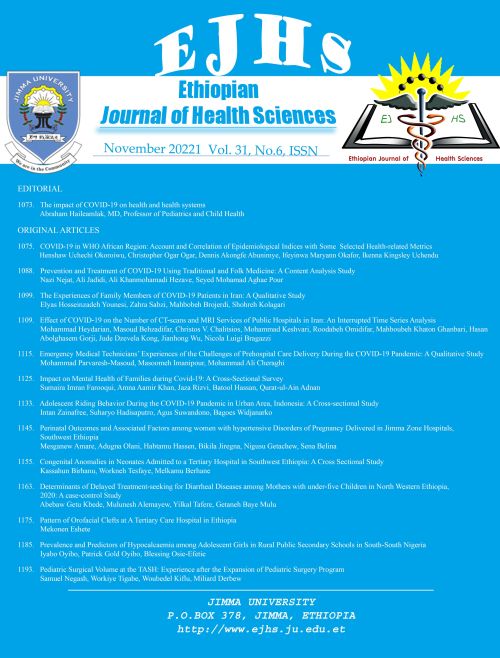Main Article Content
Five-Year Trend Analysis of Malaria Cases in East Shawa Zone, Ethiopia
Abstract
BACKGROUND: Malaria is an infectious disease caused by Plasmodium parasites. Of the five human malaria parasites Plasmodium falciparum and Plasmodium vivax are the two coendemic predominant and widely distributed species in Ethiopia, with major public health importance. Even though enormous effort has been made countrywide to reduce the disease burden little was reported about trends of malaria transmission in the several localities of malarious areas like East Shawa Zone, Ethiopia. Thus, the present study was aimed at assessing fiveyear (2016-2020) trends of malaria transmission at Adama, Boset and Lume districts of East Shawa Zone of Oromia Regional State, Ethiopia.
METHODS: Retrospective data was extracted from the central surveillance database of East Shawa Zone Health Office. The data collected was analyzed from September 2020 to December 2020 to examine trends of malaria epidemiology in three malarious districts in the Zone.
RESULTS: The results of the present study showed a remarkable decrease in slide positivity rate (SPR) from 16.3 to 1.4% from 2016 to 2018 in the areas. However, a recent slight increase of malaria SPR was observed. On the other hand, as age increases more male individuals were infected with malaria compared to
female of similar age groups. Falciparum, vivax and mixed malaria infection accounted for 53%, 41% and 6% respectively.
CONCLUSIONS: Even though, an overall reduction of malaria incidence was revealed in the study areas, an increase in malaria SPR was observed in 2019 and 2020. Such inconsistency in reduction of malaria cases in the study area demands due attention of health planners.






